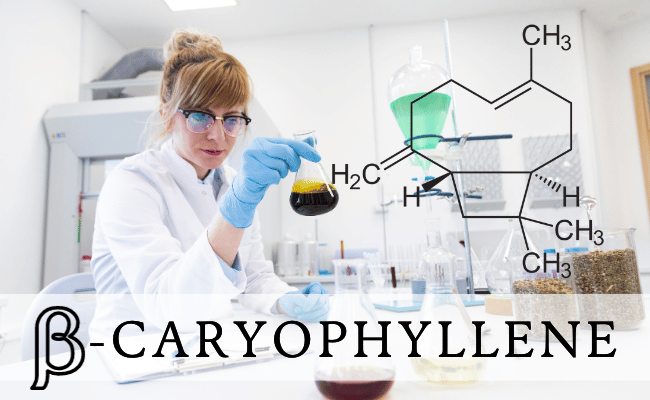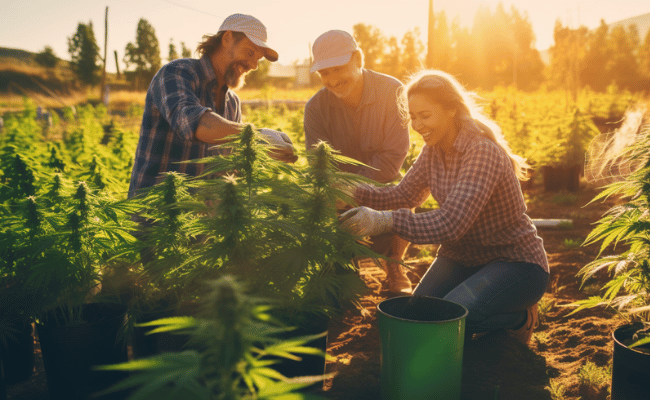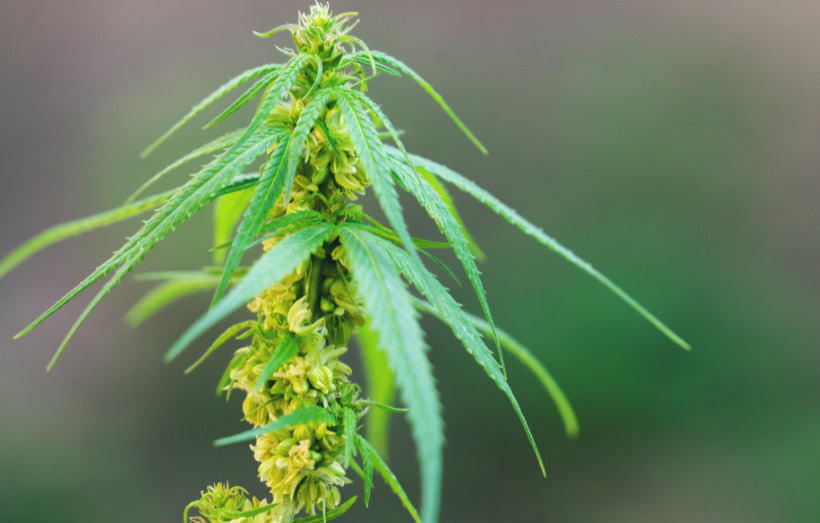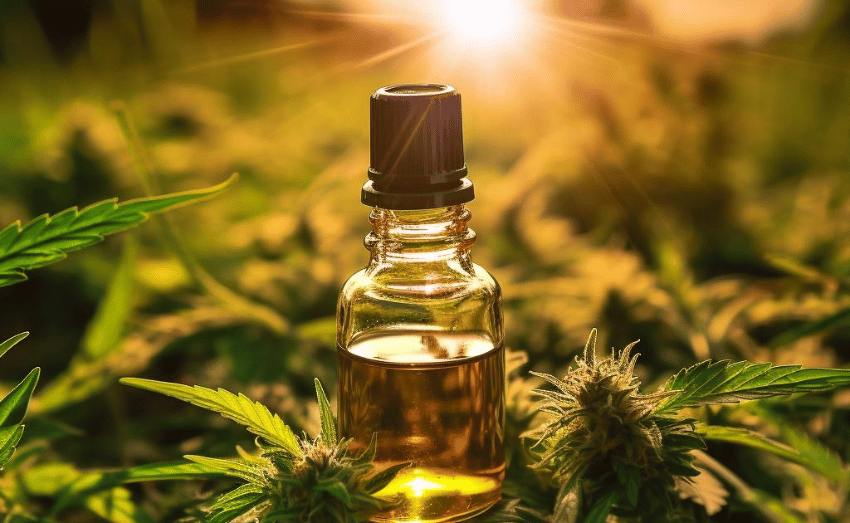Welcome, budding agronomists and farm enthusiasts! If you’ve clicked on this article, you’re likely wondering about the potential of hemp as a crop. Here, we’ve broken down the basics in an easy-to-digest manner, backed by scientific studies, expert opinions, and statistics.
Why Consider Growing Hemp?
- Sustainability: Hemp has been lauded as an eco-friendly crop. It uses less water compared to other major crops like cotton.
- Versatility: Hemp has a plethora of uses, from textiles and building materials to health supplements.
- Economic Potential: As industries move toward eco-friendly alternatives, hemp products are in demand. This can translate to potential profits for farmers.
Is Hemp A Good Crop To Grow?
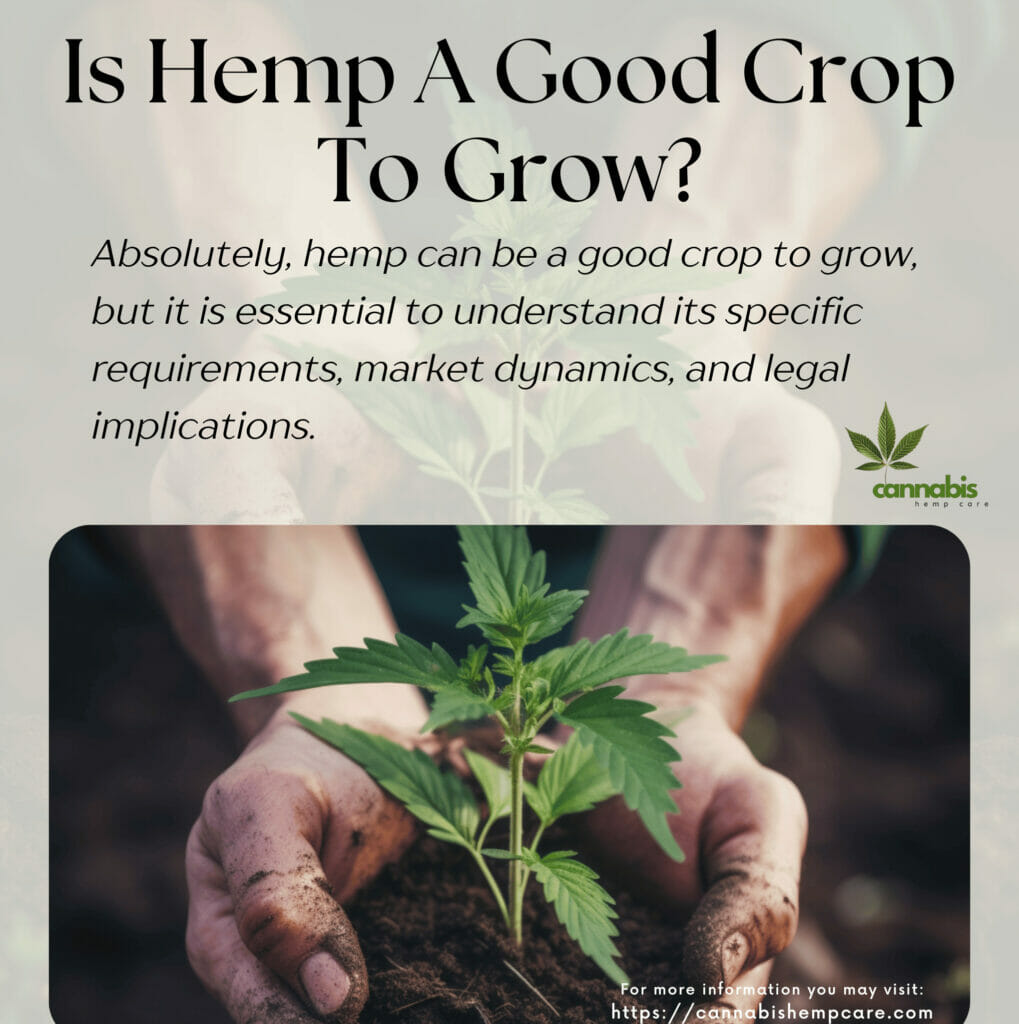
Absolutely, hemp can be a good crop to grow, but it is essential to understand its specific requirements, market dynamics, and legal implications. As a beginner, here’s a more in-depth look at the aspects you should consider:
1. Versatility of Hemp
Hemp is an incredibly versatile plant. It can be used to produce fibers, seeds, oil, and even medicinal products like CBD (cannabidiol). As a beginner, you can choose the type of hemp cultivation that suits your resources and local market demands.
2. Environmental Benefits
Hemp is a highly sustainable crop. Not only does it use less water compared to other crops, but it also enriches the soil and controls weeds. A study by the University of Kentucky found that hemp plants could absorb up to 22 tonnes of carbon dioxide per hectare, making it an eco-friendly choice.
3. Crop Rotation
Hemp can be a great addition to crop rotation systems. By diversifying your crops, you can improve soil health and reduce the risk of pests and diseases. Research from Purdue University indicates that hemp can break the disease cycles of many pathogens, which can be particularly beneficial for beginners.
4. Economic Potential
Hemp cultivation can be profitable if you have the right market conditions and access to resources. Keep in mind that while hemp products are in demand, the market can be volatile. To succeed, it’s crucial to research the local market trends and network with potential buyers.
5. Legal Considerations
Hemp cultivation is legal at the federal level in the United States, but individual state regulations may differ. Always ensure that you’re following the correct guidelines in your area. Consult with local agricultural extensions or even seek legal advice if needed.
6. Potential Challenges
Though hemp has many benefits, it’s not a guaranteed success. Hemp can face issues like pest infestations and mold. Lack of nearby processing facilities can also be a hurdle, as it means increased transport costs. Stay informed about these potential challenges and learn how to mitigate them.
7. Continuous Learning
As a beginner, you may face a steep learning curve. But by investing time in understanding hemp cultivation, networking with experienced farmers, and staying updated on market dynamics, you can navigate the complexities more efficiently.
Hemp can be a good crop to grow for beginners who are willing to put in the effort to understand its unique requirements and market dynamics. By combining your passion for farming with research and networking, you can cultivate a successful hemp crop.
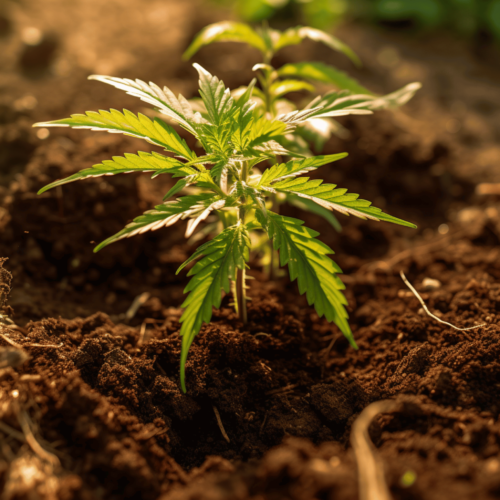
What Are the Environmental Benefits of Hemp?
- Soil Enrichment: A study from the European Industrial Hemp Association showed that hemp plants have deep roots which help improve soil structure.
- Natural Weed Control: Hemp plants grow rapidly, shading out weeds, reducing the need for chemical herbicides.
- Carbon Sequestration: Research has indicated that hemp crops absorb more carbon dioxide per hectare than any forest or commercial crop, making it instrumental in fighting climate change.
How Much Can I Earn From Hemp Farming?
For Hemp Fiber:
- One acre yields 2.5 to 3 tons of fiber.
- The price hovers around $250 a ton.
- Factoring costs, potential profit is approximately $450 per acre.
For Hemp Seeds:
- One acre yields around 1000 pounds of seeds.
- Seeds can sell for $0.6 to $0.65 per pound.
- Your potential profit? Roughly $250 to $300 per acre.
But remember, these figures can fluctuate based on market conditions and local demand.
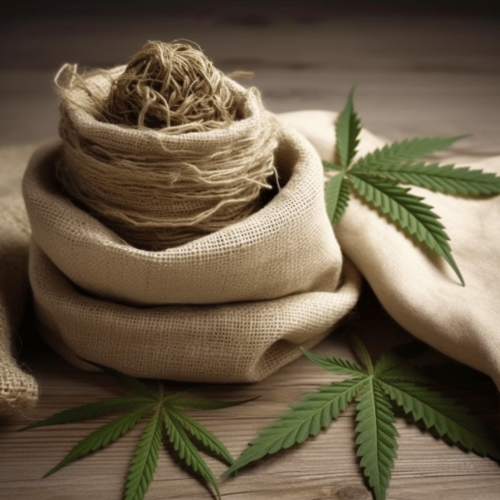
Why Is Hemp Considered Eco-Friendly?
- Fast Growth: Hemp matures in just about 4 months, meaning it can be harvested more quickly than many other crops.
- Less Pesticides: Due to its inherent properties, hemp requires fewer pesticides, which means less environmental pollution.
- Bioremediation: Hemp has a unique ability to clean the soil by removing harmful chemicals and pollutants through a process called phytoremediation. A notable example is the use of hemp to cleanse soils contaminated by the Chernobyl nuclear disaster.
How Do I Start Growing Hemp?
Soil & Planting Conditions:
Hemp prefers well-aerated soil with a high nutrient content.
Seedlings can withstand a light frost but aim for a soil temperature of around 55°F for planting.
Seed Selection:
Ensure your hemp seeds are certified to contain less than 0.3% THC, adhering to federal regulations.
Varieties like Futura 75 and Futura 77 are known to be suitable for areas like Nebraska.
Fertilization:
Optimal rates will depend on soil test values. But as a starting point, Penn State University recommends 150 lb/ac N, 30 lb/ac P2O5, and 20 lb/ac K2O.
Are There Any Challenges I Should Be Aware Of?
Absolutely. Like any venture, hemp cultivation has its challenges.
- Processing Hurdles: Hemp requires specialized processing. The absence of local facilities could mean additional transport costs.
- Regulations: Laws surrounding hemp cultivation vary. Ensure you’re updated on local and federal guidelines.
- Market Dynamics: The hemp market is young and can be volatile. It’s crucial to stay informed and adjust strategies as needed.
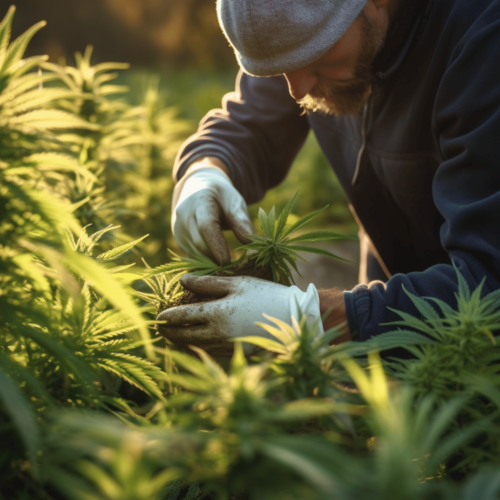
Conclusion
Hemp, with its array of benefits and potential profits, seems like a promising venture. However, successful cultivation demands diligence, continuous learning, and adaptation. Always back your decisions with research and expert opinions.
FAQs
What are the primary uses of hemp?
Hemp can be used for textiles, building materials, biofuel, paper products, CBD oil, and as a food source rich in protein and omega-3s.
Does hemp require a lot of water to grow?
Hemp generally requires less water than crops like cotton. However, consistent moisture is needed during germination and early growth.
Are there pests or diseases I should be aware of?
Yes, hemp can be susceptible to certain pests and diseases like hemp borer and grey mold. Rotation with other crops can help mitigate these risks.
How do I process hemp after harvest?
Processing depends on the intended product. For fiber, you’d need to separate the fibers from the stalks. For CBD oil or seeds, specialized extraction techniques are required.
Can I use hemp as a rotational crop?
Absolutely! Hemp can be an excellent rotational crop as it improves soil health and helps break disease cycles.

